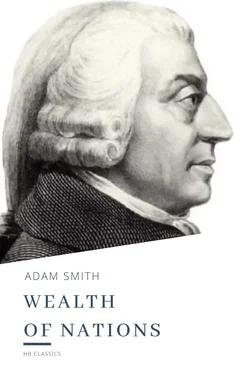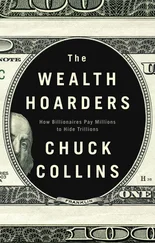That the vineyard, when properly planted and brought to perfection, was the most valuable part of the farm, seems to have been an undoubted maxim in the ancient agriculture, as it is in the modern through all the wine countries. But whether it was advantageous to plant a new vineyard was a matter of dispute among the ancient Italian husbandmen, as we learn from Columella. He decides, like a true lover of all curious cultivation, in favour of the vineyard, and endeavours to show, by a comparison of the profit and expense, that it was a most advantageous improvement. Such comparisons, however, between the profit and expense of new projects are commonly very fallacious, and in nothing more so than in agriculture. Had the gain actually made by such plantations been commonly as great as he imagined it might have been, there could have been no dispute about it. The same point is frequently at this day a matter of controversy in the wine countries. Their writers on agriculture, indeed, the lovers and promoters of high cultivation, seem generally disposed to decide with Columella in favour of the vineyard. In France the anxiety of the proprietors of the old vineyards to prevent the planting of any new ones, seems to favour their opinion, and to indicate a consciousness in those who must have the experience that this species of cultivation is at present in that country more profitable than any other. It seems at the same time, however, to indicate another opinion, that this superior profit can last no longer than the laws which at present restrain the free cultivation of the vine. In 1731, they obtained an order of council prohibiting both the planting of new vineyards and the renewal of those old ones, of which the cultivation had been interrupted for two years, without a particular permission from the king, to be granted only in consequence of an information from the intendant of the province, certifying that he had examined the land, and that it was incapable of any other culture. The pretence of this order was the scarcity of corn and pasture, and the superabundance of wine. But had this superabundance been real, it would, without any order of council, have effectually prevented the plantation of new vineyards, by reducing the profits of this species of cultivation below their natural proportion to those of corn and pasture. With regard to the supposed scarcity of corn, occasioned by the multiplication of vineyards, corn is nowhere in France more carefully cultivated than in the wine provinces, where the land is fit for producing it; as in Burgundy, Guienne, and the Upper Languedoc. The numerous hands employed in the one species of cultivation necessarily encourage the other, by affording a ready market for its produce. To diminish the number of those who are capable of paying for it is surely a most unpromising expedient for encouraging the cultivation of corn. It is like the policy which would promote agriculture by discouraging manufactures.
The rent and profit of those productions, therefore, which require either a greater original expense of improvement in order to fit the land for them, or a greater annual expense of cultivation, though often much superior to those of corn and pasture, yet when they do no more than compensate such extraordinary expense, are in reality regulated by the rent and profit of those common crops.
It sometimes happens, indeed, that the quantity of land, which can be fitted for some particular produce, is too small to supply the effectual demand. The whole produce can be disposed of to those who are willing to give somewhat more than what is sufficient to pay the whole rent, wages, and profit necessary for raising and bringing it to market, according to their natural rates, or according to the rates at which they are paid in the greater part of other cultivated land. The surplus part of the price which remains after defraying the whole expense of improvement and cultivation may commonly, in this case, and in this case only, bear no regular proportion to the like surplus in corn or pasture, but may exceed it in almost any degree; and the greater part of this excess naturally goes to the rent of the landlord.
The usual and natural proportion, for example, between the rent and profit of wine and those of corn and pasture must be understood to take place only with regard to those vineyards which produce nothing but good common wine, such as can be raised almost anywhere, upon any light, gravelly, or sandy soil, and which has nothing to recommend it but its strength and wholesomeness. It is with such vineyards only that the common land of the country can be brought into competition; for with those of a peculiar quality it is evident that it cannot.
The vine is more affected by the difference of soils than any other fruit tree. From some it derives a flavour which no culture or management can equal, it is supposed, upon any other. This flavour, real or imaginary, is sometimes peculiar to the produce of a few vineyards; sometimes it extends through the greater part of a small district, and sometimes through a considerable part of a large province. The whole quantity of such wines that is brought to market falls short of the effectual demand, or the demand of those who would be willing to pay the whole rent, profit, and wages, necessary for preparing and bringing them thither, according to the ordinary rate, or according to the rate at which they are paid in common vineyards. The whole quantity, therefore, can be disposed of to those who are willing to pay more, which necessarily raises the price above that of common wine. The difference is greater or less according as the fashionableness and scarcity of the wine render the competition of the buyers more or less eager. Whatever it be, the greater part of it goes to the rent of the landlord. For though such vineyards are in general more carefully cultivated than most others, the high price of the wine seems to be not so much the effect as the cause of this careful cultivation. In so valuable a produce the loss occasioned by negligence is so great as to force even the most careless to attention. A small part of this high price, therefore, is sufficient to pay the wages of the extraordinary labour bestowed upon their cultivation, and the profits of the extraordinary stock which puts that labour into motion.
The sugar colonies possessed by the European nations in the West Indies may be compared to those precious vineyards. Their whole produce falls short of the effectual demand of Europe, and can be disposed of to those who are willing to give more than what is sufficient to pay the whole rent, profit, and wages necessary for preparing and bringing it to market, according to the rate at which they are commonly paid by any other produce. In Cochin China the finest white sugar commonly sells for three piasters the quintal, about thirteen shillings and sixpence of our money, as we are told by Mr. Poivre, a very careful observer of the agriculture of that country. What is there called the quintal weighs from a hundred and fifty to two hundred Paris pounds, or a hundred and seventy-five Paris pounds at a medium, which reduces the price of the hundred-weight English to about eight shillings sterling, not a fourth part of what is commonly paid for the brown or muskavada sugars imported from our colonies, and not a sixth part of what is paid for the finest white sugar. The greater part of the cultivated lands in Cochin China are employed in producing corn and rice, the food of the great body of the people. The respective prices of corn, rice, and sugar, are there probably in the natural proportion, or in that which naturally takes place in the different crops of the greater part of cultivated land, and which recompenses the landlord and farmer, as nearly as can be computed according to what is usually the original expense of improvement and the annual expense of cultivation. But in our sugar colonies the price of sugar bears no such proportion to that of the produce of a rice or corn field either in Europe or in America. It is commonly said that a sugar planter expects that the rum and molasses should defray the whole expense of his cultivation, and that his sugar should be all clear profit. If this be true, for I pretend not to affirm it, it is as if a corn farmer expected to defray the expense of his cultivation with the chaff and the straw, and that the grain should be all clear profit. We see frequently societies of merchants in London and other trading town's purchase waste lands in our sugar colonies, which they expect to improve and cultivate with profit by means of factors and agents, notwithstanding the great distance and the uncertain returns from the defective administration of justice in those countries. Nobody will attempt to improve and cultivate in the same manner the most fertile lands of Scotland, Ireland, or the corn provinces of North America, though from the more exact administration of justice in these countries more regular returns might be expected.
Читать дальше












